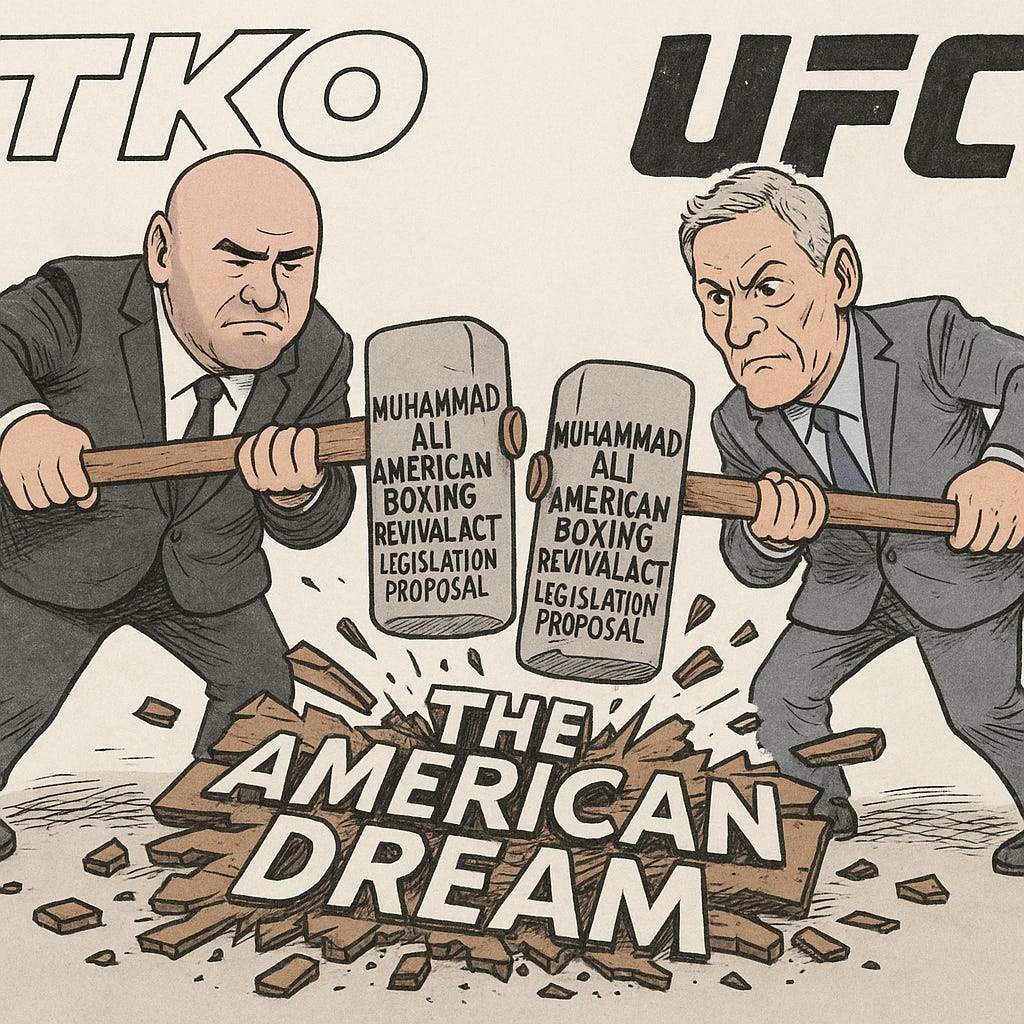Axe’s Autopsy: Cages, Cabinets, and Political Power Plays
From vacant contenders to legislative chokeholds, the real fight for who controls the future of combat sports is taking shape.
“Power is not revealed by striking hard or often, but by striking true.”
— Honoré de Balzac
There’s a tremor running through combat sports. From contract renewals to White House spectacles and live fight announcements, every piece is falling into place. Stakes are high, and narratives are real. Welcome to the debut edition of Axe’s Autopsy on The MMA Draw…



